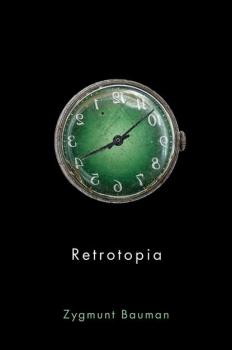Социология
Различные книги в жанре СоциологияTyson
Beast. Monster. Savage. Psycho. The glowering menace of Mike Tyson has spooked us for almost two decades. And still we remain fascinated. Why? Ellis Cashmore's answer is disturbing: white society has created Tyson as vengeance for the loss of privilege produced by civil rights. Cashmore's eviscerating analysis of Tyson's life and the culture in which he grew up, rose to prominence and descended into disgrace provokes the reader into re-thinking the role of one of the most controversial and infamous figures of recent history. Told as an odyssey-style homeward journey to Tyson's multi-pathological origins in the racially-explosive ghettos of the 1960s, Tyson's story is part biography, part tragedy and part exposition. His associations with people like Al Sharpton, Don King and Tupac Shakur shaped his life; and events, such as the O J Simpson trial and the Rodney King riots, formed a turbulent background for the Tyson psychodrama. Over the course of an epic boxing career, Tyson was transformed from the most celebrated athlete on earth to a primal, malevolent hate-figure. Yet, even after being condemned as a brute, Tyson retained a power – a power to captivate. Cashmore reveals that the sources of that power lie as much in us as in Tyson himself.
Veil
The Islamic headscarf has become the subject of heated legal and political debate. France and Germany have legislated against it, and even the UK, long a champion of multiculturalism, has recently restricted the veil proper. Ever since home-grown Islamic terrorism struck Europe, these debates have become even more prominent, impassioned and wide-ranging, with vital global importance. In this concise and beautifully written introduction to the politics of the veil in modern societies, Christian Joppke examines why a piece of clothing could have led to such controversy. He dissects the multiple meanings of the Islamic headscarf, and explores its links with the global rise of Islam, Muslim integration, and the retreat from multiculturalism. He argues that the headscarf functions as a mirror of identity, but one in which national and liberal identities overlap, exposing the paradox that while it may be an affront to liberal values, its suppression is equally illiberal. Veil: Mirror of Identity will illuminate, challenge and provoke readers, and will make compelling reading for scholars, students and general readers alike.
Professionalism
Eliot Freidson has written the first systematic account of professionalism as a method of organizing work. In ideal-typical professionalism, specialized workers control their own work, while in the free market consumers are in command, and in bureaucracy managers dominate. Freidson shows how each method has its own logic requiring different kinds of knowledge, organization, career, education and ideology. He also discusses how historic and national variations in state policy, professional organization, and forms of practice influence the strength of professionalism. In appraising the embattled position of professions today, Freidson concludes that ideologically inspired attacks pose less danger to professionals' institutional privileges than to their ethical independence to resist use of their specialized knowledge to maximize profit and efficiency without also providing its benefits to all in need. This timely and original analysis will be of great interest to those in sociology, political science, history, business studies and the various professions.
Metamorphoses
The discussions about the ethical, political and human implications of the postmodernist condition have been raging for longer than most of us care to remember. They have been especially fierce within feminism. After a brief flirtation with postmodern thinking in the 1980s, mainstream feminist circles seem to have turned their back on the staple notions of poststructuralist philosophy. Metamorphoses takes stock of the situation and attempts to reset priorities within the poststructuralist feminist agenda. Cross-referring in a creative way to Deleuze's and Irigaray's respective philosophies of difference, the book addresses key notions such as embodiment, immanence, sexual difference, nomadism and the materiality of the subject. Metamorphoses also focuses on the implications of these theories for cultural criticism and a redefinition of politics. It provides a vivid overview of contemporary culture, with special emphasis on technology, the monstrous imaginary and the recurrent obsession with 'the flesh' in the age of techno-bodies. This highly original contribution to current debates is written for those who find changes and transformations challenging and necessary. It will be of great interest to students and scholars of philosophy, feminist theory, gender studies, sociology, social theory and cultural studies.
TechnoFeminism
This timely and engaging book argues that technoscientific advances are radically transforming the woman-machine relationship. However, it is feminist politics rather than the technologies themselves that make the difference. TechnoFeminism fuses the visionary insights of cyberfeminism with a materialist analysis of the sexual politics of technology.
Privatization
Contemporary privatization remakes nature-society as property and transforms people’s relationships to themselves, each other, and the natural world. This groundbreaking collection provides the first systematic analysis of neo-liberal privatization. Rich case studies of privatization in the making reveal both the pivotal role that privatization plays in neoliberalism and new opportunities for challenging neo-liberal hegemony. Rich case studies linked to broader questions on neoliberalism Illustrates the importance of property relation and the complexities existing in the meaning and practice of property Extends current geographical scholarship on neoliberalism –including neoliberalism and nature Each essay touches on the disciplinary, regulatory dimensions of privatization Highlights the importance of privatization, both broadly and specifically
Management
This is a lively introduction to management, covering an array of management orthodoxies and demonstrating, through contemporary sociological theory, that many of the old approaches are in need of reconstruction.
Retrotopia
We have long since lost our faith in the idea that human beings could achieve human happiness in some future ideal state—a state that Thomas More, writing five centuries ago, tied to a topos, a fixed place, a land, an island, a sovereign state under a wise and benevolent ruler. But while we have lost our faith in utopias of all hues, the human aspiration that made this vision so compelling has not died. Instead it is re-emerging today as a vision focused not on the future but on the past, not on a future-to-be-created but on an abandoned and undead past that we could call retrotopia. The emergence of retrotopia is interwoven with the deepening gulf between power and politics that is a defining feature of our contemporary liquid-modern world—the gulf between the ability to get things done and the capability of deciding what things need to be done, a capability once vested with the territorially sovereign state. This deepening gulf has rendered nation-states unable to deliver on their promises, giving rise to a widespread disenchantment with the idea that the future will improve the human condition and a mistrust in the ability of nation-states to make this happen. True to the utopian spirit, retrotopia derives its stimulus from the urge to rectify the failings of the present human condition—though now by resurrecting the failed and forgotten potentials of the past. Imagined aspects of the past, genuine or putative, serve as the main landmarks today in drawing the road-map to a better world. Having lost all faith in the idea of building an alternative society of the future, many turn instead to the grand ideas of the past, buried but not yet dead. Such is retrotopia, the contours of which are examined by Zygmunt Bauman in this sharp dissection of our contemporary romance with the past.
Time
Helga Nowotny's exploration of the forms and meaning of time in contemporary life is panoramic without in any way partaking of the blandness of a survey. From the artificial time of the scientific laboratory to the distinctively modern yearning for one’s own time, she regards every topic in this wide-ranging book from a fresh angle of vision, one which reveals unsuspected affinities between the bravest, newest worlds of global technology and the most ancient worlds of myth. –Lorraine Daston, University of Chicago This book represents a major contribution to the understanding of time, giving particular attention to time in relation to modernity. The development of industrialism, the author points out, was based upon a linear and abstract conception of time. Today we see that form of production, and the social institutions associated with it, supplanted by flexible specialization and just-in-time production systems. New information and communication technologies have made a fundamental impact here. But what does all this mean for temporal regimes? How can we understand the transformation of time and space involved in the bewildering variety of options on offer in a postmodern world? The author provides an incisive analysis of the temporal implications of modern communication. She considers the implications of worldwide simultaneous experience, made possible by satellite technologies, and considers the reorganization of time involved in the continuous technological innovation that marks our era. In this puzzling universe of action, how does one achieve a 'time of one's own'? The discovery of a specific time perspective centred in the individual, she shows, expresses a yearning for forms of experience that are subversive of established institutional patterns. This brilliant study, became a classic in Germany, will be of interest to students and professionals working in the areas of social theory, sociology, politics and anthropology.









